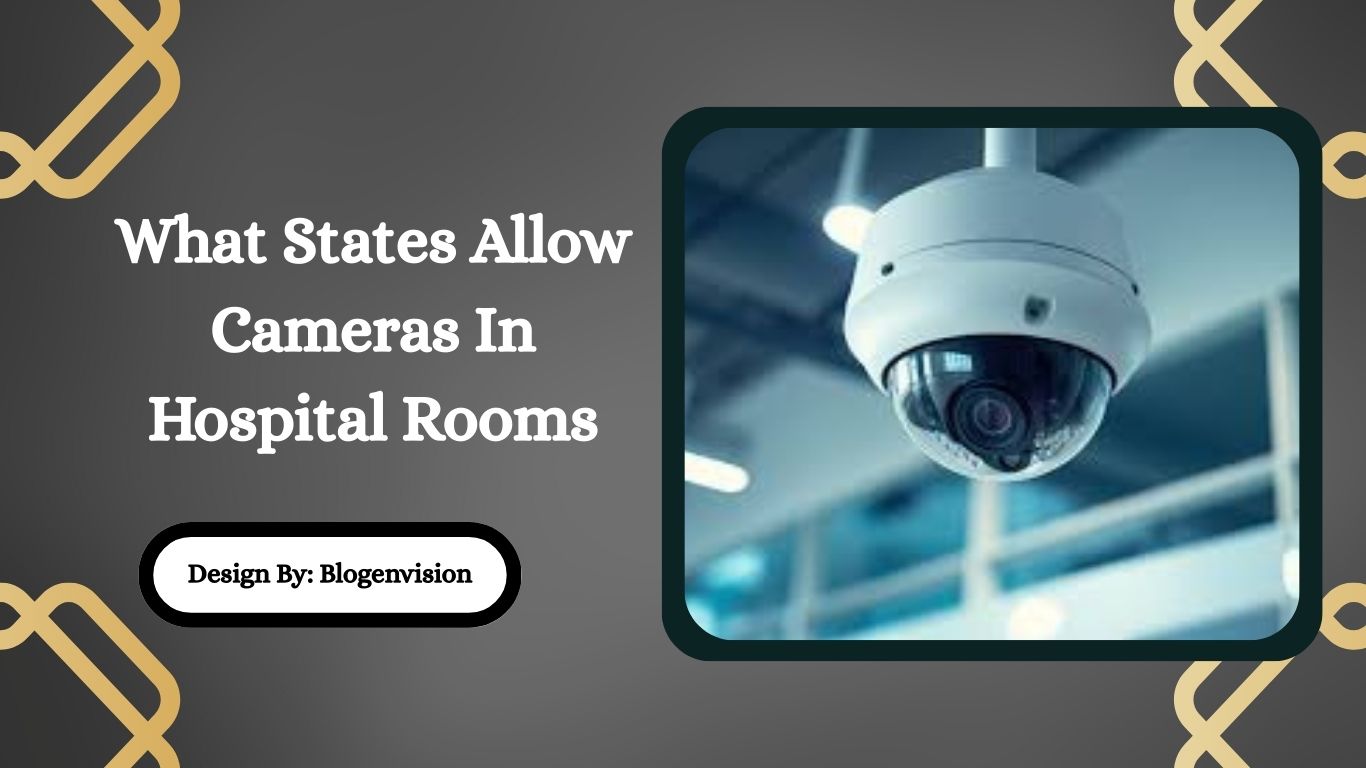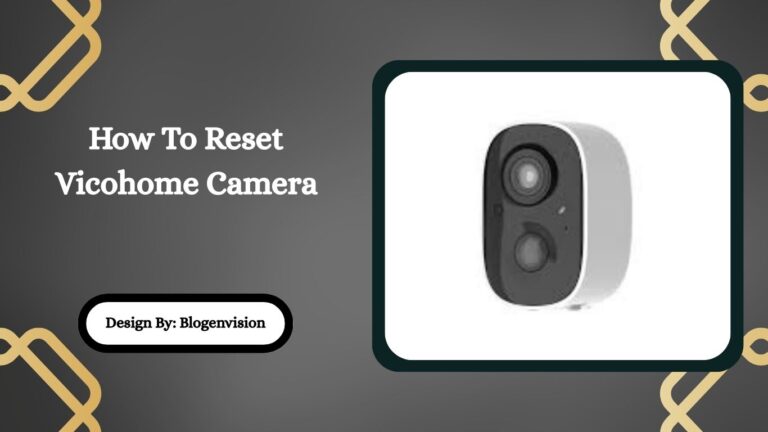What States Allow Cameras In Hospital Rooms – Complete Guide!
Some U.S. states like Texas and Illinois allow cameras in hospital rooms with consent, while others restrict or ban it. Always check state laws and hospital policies before installing one.
Introduction:
Many people wonder if they can place a camera in a hospital room to keep an eye on their loved ones. Whether it’s an elderly parent, a sick child, or a patient recovering from surgery, families often want extra peace of mind. But is it legal? The answer depends on where you live.
Different states have different laws, and each hospital may have its own rules. Some states allow it under certain conditions, while others don’t. In this article, we’ll explain what states allow cameras in hospital rooms, what the law says, and what you need to know before recording.
Why Do People Want to Use Cameras in Hospital Rooms?

Families often worry when a loved one is in the hospital—especially if they can’t visit every day. That’s why many want to place a small camera in the hospital room. The main reasons are:
- To monitor care and make sure the patient is treated well
- To protect elderly or vulnerable patients from abuse or neglect
- To check on nurses or hospital staff when the family isn’t present
- To document treatment in case of future issues or legal concerns
These cameras give families a sense of control and comfort. But even with good intentions, there are important legal and ethical rules to follow.
Federal Laws: What Does the Government Say?
There is no national law that clearly says yes or no to cameras in hospital rooms. However, hospitals in the United States must follow HIPAA laws. HIPAA protects the privacy of patient health information.
This means:
- You cannot record or share private medical details without permission.
- Recording other patients, doctors, or nurses without their consent can lead to legal problems.
- Hospitals have a duty to protect everyone’s privacy—not just the patient being recorded.
Because of this, most hospitals create their own policies about cameras. And that’s where state laws come in.
What States Allow Cameras in Hospital Rooms?
Here’s a closer look at how different states handle cameras in hospitals or care settings:
✅ States That Generally Allow Cameras (With Rules)
Some states allow cameras in medical settings like hospitals or nursing homes, as long as certain conditions are met.
Texas
Texas law allows cameras in nursing homes, and many hospitals follow similar guidelines. Families must notify the hospital and get permission, but it’s usually allowed if done respectfully.
Illinois
Illinois passed a law allowing electronic monitoring in long-term care facilities. In hospitals, you may be allowed to record if you get written consent from the patient and notify staff.
Louisiana
Louisiana allows cameras in nursing homes, and the same idea may apply to hospitals. Permission from the hospital is needed, and privacy must be respected.
New Mexico
This state allows electronic monitoring in care homes. Hospitals usually allow it if all parties involved are aware and agree to it.
Missouri
Legal in long-term care settings. Hospitals often follow similar rules and may allow cameras when families request it formally.
In these states, families can often use cameras if they follow proper steps—like getting permission and not recording anyone else without their knowledge.
Also Read: How To Win Red Light Camera Ticket – Complete Guide!
❌ States With Restrictions or Where It’s Not Clearly Allowed
Other states have strict privacy laws, and hidden or unauthorized recording is usually not allowed.
California
California is a two-party consent state, meaning everyone being recorded must agree. Most hospitals in California don’t allow personal surveillance cameras.
New York
New York does not have a law that directly allows or bans cameras in hospitals, but most hospitals prohibit recording without approval.
Florida
Also a two-party consent state. Recording people without their permission is illegal, and hospitals may have strict no-camera policies.
Massachusetts
Strong privacy laws make it hard to use personal cameras in hospital rooms without full consent from staff and other patients.
Washington
This is another state with strict two-party consent rules, which makes it nearly impossible to legally place a camera in a hospital room without proper approvals.
In these states, recording without full permission can result in legal consequences—including fines, lawsuits, or even criminal charges.
What About Hidden Cameras?
Hidden cameras are almost always a bad idea in hospital settings. While they may seem like a solution, they are often illegal in many states—especially in two-party consent states.
Placing a hidden camera in a hospital room can lead to:
- Criminal charges for illegal recording
- Civil lawsuits from staff or patients
- Violation of hospital policies, which could result in the camera being removed or confiscated
Always be honest and ask for permission. Hidden cameras may offer short-term comfort but long-term problems.
Things to Do Before Using a Camera in a Hospital Room:

If you’re thinking about installing a camera in a hospital room, here are steps you should follow:
- Check your state law about recording and consent
- Ask the hospital about their camera policy
- Get written permission from the patient or legal guardian
- Make sure the camera doesn’t record others in shared spaces
- Use the footage only for safety purposes, not public sharing
Being honest and respectful can make a big difference. Most hospitals want what’s best for patients—but they also must protect everyone’s privacy.
How to Talk to the Hospital About Using a Camera?
Here are a few tips when requesting camera use:
- Stay calm and respectful
- Explain that it’s for patient safety and peace of mind
- Offer to share placement details (where the camera will be, what it will record)
- Respect hospital rules—even if they say no
- Be open to alternatives, like more frequent staff check-ins or open visitation
Hospitals may be more willing to allow cameras when families approach them with understanding and care.
FAQs:
1. Is it legal to put camera in a hospital room?
It depends on the state. Some allow it with consent, while others have privacy laws that restrict or prohibit recording in hospital settings.
2. Can I use a hidden camera in a hospital room?
Hidden cameras are often illegal, especially in two-party consent states. Using one without permission can result in serious legal trouble and violates most hospital policies.
3. Do hospitals have the final say on camera use?
Yes. Even if state law allows it, hospitals can prohibit cameras based on their own privacy policies to protect patients and staff.
4. Which states clearly allow cameras in hospital rooms?
States like Texas, Illinois, Missouri, Louisiana, and New Mexico generally allow cameras with patient consent and proper notification to hospital administration.
5. What should I do before placing a camera in a hospital room?
Check your state’s laws, talk to the hospital, get written patient consent, and ensure the camera respects others’ privacy in shared spaces.
Conclusion:
Placing a camera in a hospital room can help ensure patient safety and family peace of mind, but laws vary by state. While states like Texas and Illinois allow it under certain conditions, others restrict it due to privacy concerns. Always research your local laws, speak with hospital administrators, and get proper consent. Following these steps will help you protect your loved ones respectfully and within legal boundaries.







